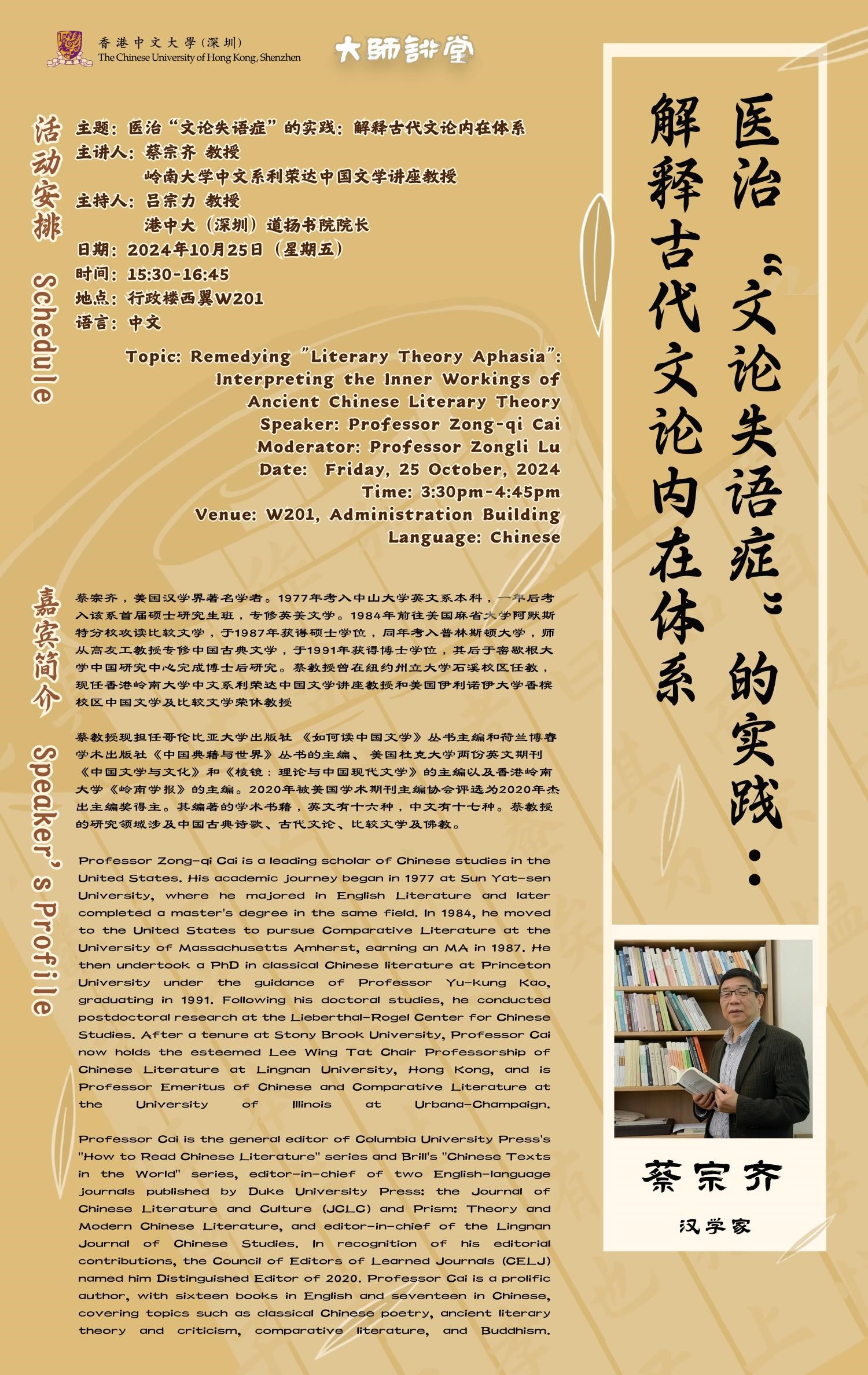【Master Forum】Remedying "Literary Theory Aphasia": Interpreting the Inner Workings of Ancient Chinese Literary Theory
Topic:?Remedying "Literary Theory Aphasia": Interpreting the Inner Workings of Ancient Chinese Literary Theory
Speaker:?Prof. Zong-qi Cai
Moderator:?Prof. Zongli Lu
Date:?Friday, 25 October, 2024
Time:?3:30 p.m. - 4:45 p.m.
Venue:?W201, West Wing, Administration Building
Language:?Chinese
?
Speaker Profile:
Professor Zong-qi Cai is a leading scholar of Chinese studies in the United States. His academic journey began in 1977 at Sun Yat-sen University, where he majored in English Literature and later completed a master's degree in the same field. In 1984, he moved to the United States to pursue Comparative Literature at the University of Massachusetts Amherst, earning an MA in 1987. He then undertook a PhD in classical Chinese literature at Princeton University under the guidance of Professor Yu-kung Kao, graduating in 1991. Following his doctoral studies, he conducted postdoctoral research at the Lieberthal-Rogel Center for Chinese Studies. After a tenure at Stony Brook University, Professor Cai now holds the esteemed Lee Wing Tat Chair Professorship of Chinese Literature at Lingnan University, Hong Kong, and is Professor Emeritus of Chinese and Comparative Literature at the University of Illinois at Urbana-Champaign.
?
Professor Cai is the general editor of Columbia University Press's "How to Read Chinese Literature" series and Brill's "Chinese Texts in the World" series, editor-in-chief of two English-language journals published by Duke University Press: the Journal of Chinese Literature and Culture (JCLC) and Prism: Theory and Modern Chinese Literature, and editor-in-chief of the Lingnan Journal of Chinese Studies. In recognition of his editorial contributions, the Council of Editors of Learned Journals (CELJ) named him Distinguished Editor of 2020. Professor Cai is a prolific author, with sixteen books in English and seventeen in Chinese, covering topics such as classical Chinese poetry, ancient literary theory and criticism, comparative literature, and Buddhism.
?






